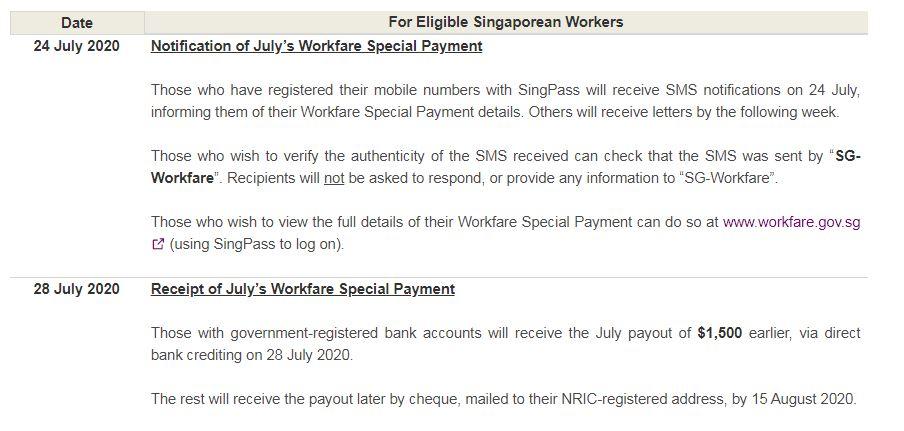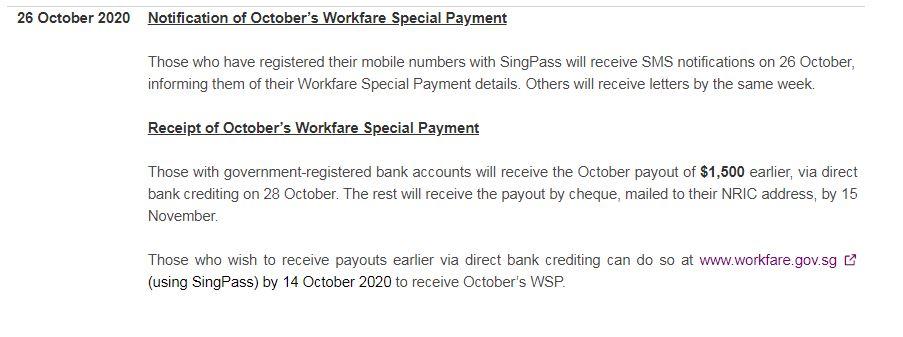share on
With jobs in Singapore at risk in the coming months, given the uncertainties in the economic outlook, the National Trades Union Congress (NTUC) has proposed a Fair Retrenchment Framework to further guide companies on responsible retrenchment practices.
The framework, which complements the existing tripartite advisory and guidelines on managing excess manpower and responsible retrenchment, sets out three guiding principles for companies to note - protecting the Singaporean core, preserving jobs, and providing job support.
These are detailed as follows:
Principle 1: Protecting Singaporean Core
In the event retrenchments are inevitable, NTUC calls on companies to implement fair selection criteria to ensure that the Singaporean Core is safeguarded with Singaporeans keeping their jobs in terms of job protection and redeployment, while due considerations are given to foreign workers.
- Companies should have in place a set of selection criteria for managing excess manpower based on business needs and reasonableness. This may include reviewing the ability, experience, skills and occupational qualification of employees, which are required to meet future business needs.
- Companies should ensure an ageless workplace with a balanced and equitable approach, taking into account keeping older employees who may possess skills, experience, knowledge, maturity and reliability; and evaluating them based on an equal basis.
- As foreigners are intended to augment Singaporeans in the workforce, companies may consider keeping them in their workforce if they have special/critical skills for the continuity of the business. Companies should also ensure that these skills are transferred to Singaporeans in the longer term.
Principle 2: Preserving Jobs
As emphasised in the earlier advisories, retrenchments should always be the last resort for companies. Before employers consider retrenchments, as an early intervention, they should work with unions and workers to find ways to preserve as many jobs as possible and minimise downtime. This will ensure the companies have the manpower capacity to seize business opportunities when the economy recovers.
Measures employers can consider include:
- Implementing collective pay reductions;
- Providing secondment opportunities for workers;
- Placing workers on shorter workweeks/ no pay leave/furlough;
- Allowing workers to switch to part-time contracts;
- Considering job-share arrangements for workers; and
- Tapping on government assistance schemes to mitigate manpower costs
ALSO READ: Tripartite advisory: What employers in Singapore should know about retrenchment linked to COVID-19
Principle 3: Providing Job Support
If retrenchments are inevitable, the NTUC calls on companies to provide for fair retrenchment packages and processes so that workers, who have contributed to the companies’ growth and performance, are treated fairly and with dignity, even as they are asked to leave.
Further, companies should also join the NTUC Job Security Council to provide the necessary support to workers who may be or are affected by the retrenchments, and help them seek new employment and training for new skills that are required for new jobs, the NTUC noted.
In a Facebook post, NTUC Secretary-General Ng Chee Meng called on companies to "act responsibly and treat their workers fairly and with dignity", stating that there must be "consultation, openness and transparency."
"I urge all companies to work with NTUC and our unions early, so that our workers can get the best help possible in these challenging times."
In a separate Facebook post, Minister for Manpower Josephine Teo stated: "To employers, I hope you keep in mind another key consideration, that it is in your own interest to preserve your Singaporean core, even as you retrench. While being fair to all affected workers, keep in mind how the local workers have contributed to your presence and past successes in Singapore."
Minister Teo also called on companies to "keep a strong Singaporean core and let our people support you through this challenging time."
https://www.facebook.com/Josephine.LM.Teo/posts/4102742833133314ALSO READ: How to handle retrenchments responsibly
Dyson update: Layoffs largely affecting retail and customer service, job deployments, and more
On the topic of retrenchments, British technology company Dyson recently about 900 layoffs, which would result in around 600 redundancies in the UK and 300 in the rest of the world.
The largest proportion of impacted staff are in retail and customer service roles. The company is said to be fully supporting those who are impacted, finding alternative roles where possible.
Dyson employs 14,000 people globally of which more than 4,000 are in the UK, all eligible staff received their bonus in March 2020. However, Dyson has not furloughed any staff or drawn on public money to support jobs anywhere in the world during the COVId-19 crisis.
The layoffs have been put down to changes in consumer behaviour. "The COVID-19 crisis has accelerated changes in consumer behaviour and therefore requires changes in how we engage with our customers and how we sell our products. We are evolving our organisation and reflecting these changes to make us faster, more agile, and better able to grow sustainably,” a Dyson spokesperson told Human Resources Online.
400,000 lower-income Singaporeans to benefit from Wokfare Special Payment from 28 July
From 28 July onwards, 400,000 lower-income Singaporeans will be receiving their first payout of the Workfare Special Payment. This will be part of the Care and Support Package under the Resilience Budget, announced by Deputy Prime Minister and Minister for Finance Heng Swee Keat in March.
The Workfare Special Payment will be given to workers who are eligible for the Workfare Income Supplement (WIS, which targets the bottom 20% of the workforce) before 31 March 2021, for their work done in 2019, the Ministry of Finance stated in a press release.
They will receive the Workfare Special Payment in the same way they receive their WIS payments, i.e. via direct crediting into their bank account, or through a cheque mailed to their residential address later. WIS recipients who have not provided their bank account details are encouraged to do so to receive their future payments sooner.
Citizens who qualify for the WIS for 2019 (WY2019 WIS), after July 2020 but before 31 March 2021, will receive the Workfare Special Payment in the month that they become eligible for WY2019 WIS.
For example, a citizen who qualifies for and receives WY2019 WIS in December 2020, will also receive the full Workfare Special Payment of S$3,000 in December 2020.
A summary on eligibility and payment dates can be found below:


Lead image / 123RF
Table screenshots / Ministry of Finance, Singapore
share on


